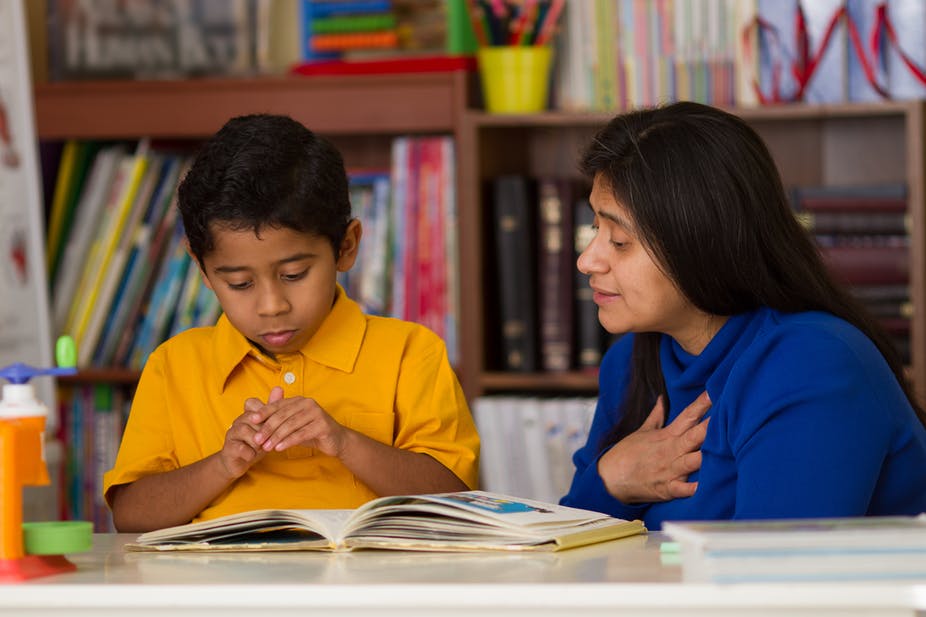Parents can provide our children with learning to read and write. It is important to establish a routine from when they are small that includes reading a story and sitting down to scribble. We can also help them develop their attention and memory capacity through games designed for it. In a playful way, we will be facilitating the subsequent learning of reading and writing.
Learning to read and write your child
In order for our children to learn to read and write without difficulties, parents must take into account a series of supports that can make the path of this learning easier.
From home, parents can teach children to acquire a series of habits and routines , which are very important to develop the habit of reading.
We can also help them improve their concentration and memorization with playful activities, when they are a bit older. Here are some guidelines that can help you in this fascinating journey, which culminates when our son masters the art of reading and writing.
The importance of routines in the habit of reading and writing
There are certain basic skills that favor learning in general. But more, if we are talking about skills as complex as reading and writing. From birth it is essential that the child acquires habits and routines. But this is especially important since the beginning of school life.
In principle they are simple rituals in relation to how to structure time at home. For example, what children usually do in the afternoons: first they snack, then they play for a while, later they bathe and finally, they have dinner before going to bed.
The way to structure this time is something specific to each family. The interesting thing is that it is something constant and repetitive and that it adapts to each age of the child. At best, at 3 years we dedicate more time to play and from 4 or 5 a time is dedicated to the game and another to school-type tasks (reading a book, scribbling on a paper …).
This distribution of time varies with the years and proposals that come from the school. Therefore, acquiring a series of routines will favor the child being ordered and will help him develop the “study habit”.
Techniques to encourage the memorization of children
Parents can also help children to encourage their memorization and attention and concentration . Contrary to what may seem, these skills can be worked in a fun way on a day-to-day basis.
The use of songs and children’s poems is very useful for memory. Parents can go singing or recite in the car on the way to school. We can start and soon we will see how the children participate and sing with us.
When they know the songs enough, we let them sing by themselves. For example, we start reciting a verse and in the end we keep quiet so that they finish it. That is, we sing “half-hearted” songs.
The games help to develop attention and concentration
The attention and concentration are worked in a very varied way: there are many games that help to develop them. For the little ones we can observe books with them and ask them to look for and point out things to us.
A little older, when they already know how to speak well and have begun to work certain letters in school, you can play “I see-I see”. And when they have gone to primary education they are helped a lot by the regulated games of the type: “Who is who?”, “Sinking the fleet”, which favor observation and contribute to concentration.
Tricks to promote the taste for children’s reading
More concretely, parents can also strengthen the learning of reading and writing by supporting the work of the school. For this, it is essential that we ask the teacher, to update us on what they are seeing at all times , what letters they are working with, if they have observed any difficulties in our child and what tasks they recommend to support them at home.
In any case, this support must be done in a playful way, without overloading the child. Neither do you understand that we are demanding certain results. For those children that reading and writing are beginning to become difficult, insisting on certain points can generate rejection. So if he does not like to read, forcing him to do so can be counterproductive. Rather, we should make reading attractive.
For the little ones, we can write in large letters and with school calligraphy the names of objects that are in the house and laminated, place them next to the object to which it corresponds. Fill the house with “signs”, for example, bathroom, kitchen, computer, sink, mirror.
Keep observation
We can also put your name and ours on posters and play them together with our photos. Observe if he learns over time to distinguish where his name is written or what he puts on each of the signs.
When they are older, we can sit down with them to read a little each day: books that are attractive to them and read the pages in half. Or read a story at bedtime, making them also participate in reading in some way.
Very important is the dramatization we make of what we read : voices, gesticulate, stage actions, … All this will make the story hooked and want to know what is written on each page. We can help your memory by being repetitive with the stories and letting them disclose “what is going to happen now?” All these actions help the development of the taste for reading.
Also, it is important to let them experiment with pencils , participate with them in drawings, guide them when creating images, play together to write. But, above all, the fundamental thing is to surprise us with everything they do and congratulate them for everything they do, even if they are just games …










